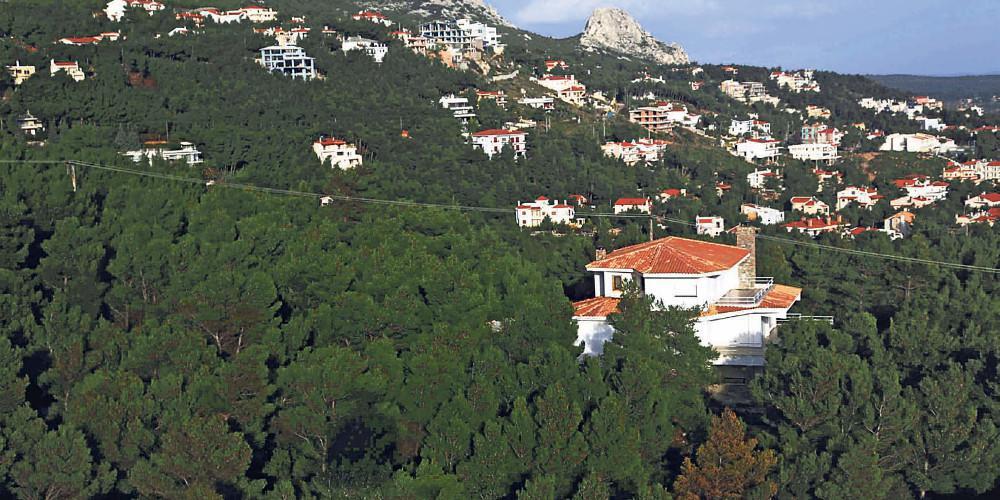Συγκεκριμένα στην ανακοίνωση του τουρκικού υπουργείου Εξωτερικών σχετικά με την έκθεση της Κομισιόν όπου ανάμεσα στα άλλα θέματα θέτει και το θέμα των Ιμίων, η Άγκυρα επισημαίνει πως «οι βράχοι των Ιμίων, τα χωρικά τους ύδατα και ο εναέριος χώρος τους είναι αποκλειστικά υπό την τουρκική κυριαρχία».
Παράλληλα, σημειώνεται ότι «δυστυχώς, η Ευρωπαϊκή Επιτροπή έδειξε ότι ήταν και πάλι απρόθυμη να καταλάβει τις δυσκολίες της εποχής που περνάμε. Αν και εξηγήσαμε αυτά τα ζητήματα που υποστηρίζονται επανειλημμένα από την τεκμηρίωση, η Επιτροπή δεν μπόρεσε να είναι αντικειμενική και ισορροπημένη. Η Τουρκία αγωνίζεται ταυτόχρονα εναντίον αρκετών τρομοκρατικών οργανώσεων, ιδιαίτερα του PKK, του DAESH και του FETO. Από την άποψη αυτή, πιστεύουμε ότι η μη αναφορά στην έκθεση για την απειλή από το FETO, που έπληξε το κράτος μας, το Κοινοβούλιο και το λαό μας, αποτελεί μια σημαντική ανεπάρκεια».
Αναφορικά με τα Ίμια, οι Τούρκοι σημειώνουν: «Είναι εντελώς λάθος και απαράδεκτο να τοποθετείται η ΕΕ ως αρμόδιος διαιτητής ή δικαστήριο και να προσπαθεί να εκδώσει μια απόφαση υπό την αιγίδα της “αλληλεγγύης της Ένωσης” όσον αφορά τις διαφορές που σχετίζονται με την κυριαρχία. Οι βραχονησίδες του “Kardak” και τα χωρικά τους ύδατα και ο εναέριος χώρος τους είναι αποκλειστικά υπό την τουρκική κυριαρχία. Η στήριξη που παρέχεται ως “λευκή επιταγή” από την Ε.Ε. σε χώρες-μέλη στη διαμάχη τους με τρίτες χώρες δεν συμβάλει στην επίλυση αυτών των ζητημάτων στο πλαίσιο των σχέσεων καλής γειτονίας και του διεθνούς δικαίου. Αυτή η στάση είναι αντίθετη με τις ίδιες τις αξίες της Ε.Ε. Οι ανακοινώσεις σε ό,τι αφορά το Κυπριακό δεν είναι παρά επανάληψη των ήδη γνωστών απόψεων της Ε.Ε., οι οποίες στηρίζονται σε λανθασμένες προϋποθέσεις για το Κυπριακό».
Ολόκληρη η ανακοίνωση του τουρκικού ΥΠΕΞ στα αγγλικά
No: 109, 17 April 2018, Press Release Regarding the 2018 Turkey Country Report and the Enlargement Strategy Paper The 2018 Turkey Country Report and the Enlargement Strategy Paper prepared by the European Commission were published today (April 17, 2018).
Unfortunately, the European Commission showed that it was once again unwilling to understand the difficulties of the period we are passing through. Although we have explained these issues repeatedly supported by documentation, the Commission was unable to be objective and balanced.
Turkey is fighting simultaneously against several terrorist organizations, particularly PKK, DAESH and FETO.
ΔΙΑΒΑΣΤΕ ΕΠΙΣΗΣ22/12/2024|23:37Την επίθεση στο Μαγδεμβούργο καταδικάζει ο Οικουμενικός Πατριάρχης Βαρθολομαίος
In this respect, we think that not mentioning in the report the threat from FETO that cowardly attacked our State, our Parliament and our people is a critical deficiency. In the report, although Turkey’s legitimate right to take immediate and proportional measures particularly following the 15 July terrorist coup attempt is reiterated, we observe that baseless allegations and accusations taken from obvious circles have also been included. Turkey continues its transparent cooperation with all related international partners including the European Union with regards to the measures taken in the context of the State of Emergency, firstly for the purpose of protecting its citizens’ democratic rights and freedoms, and conveys clearly the nature, the relevant security threats and legal frameworks of these measures to its addressees. This being the case, certain general allegations, accusations and comments targeting Turkey in the report are unacceptable. In fact, measures taken against the terrorist organizations contribute undeniably not only to our own national security but also to the security of EU member states.
On this occasion, we find it necessary to reiterate that PKK/PYD/YPG pose a serious threat against the public order and security of EU member states. On the other hand, it is totally wrong and unacceptable that the EU is positioning itself as a competent arbitrator or a court and attempting to render a judgment under the pretence of “Union solidarity” with regard to the disputes related to sovereignty. The Kardak Rocks and their territorial waters and airspace above them are exclusively under Turkish sovereignty. The support given as “carte blanche” by the EU to member states in their disputes with third countries do not contribute to the resolution of those issues within the framework of good neighbourly relations and international law. Such a stance also contradicts the EU’s own values. Statements with regards to the Cyprus issue within the report is nothing beyond repeating the EU’s already known views based on wrong premises on the Cyprus issue.
These expressions reflect the attitude of the Greek Cypriots which is the basic reason for the failure of the negotiation process and it sets yet another example of the exploitation by the Greek Cypriots of EU membership in its efforts for deadlock. The fact that the EU insists on this unilateral and distorted understanding reveals that it not only lacks strategical evaluation about the Eastern Mediterranean but also that it does not have the capacity to develop a long-term vision for the region. Operation Olive Branch, referred to in the Enlargement Strategy Paper, is a counter-terrorism operation aimed at eliminating the terror threat against Turkey and on the basis of the right to self-defence. It has set an example on how to combat terrorism without harming civilians.
For the success in fight against terrorism, the international community as a whole, including the EU, has to be consistent vis a vis terrorism and refrain from making distinctions among terrorist organisations. We think it is wrong for the European Commission to have made a distinction between Turkey and the “Western Balkans” in the Enlargement Strategy Document. Creating such artificial distinctions between candidate countries is an example of the discrimination we have been subjected to in our accession process. As referred to in the Report, the cooperation and dialogue mechanisms with the EU in important areas will continue to work. However, we would like to reiterate that such mechanisms cannot substitute our accession process.
We note the European Commission’s objective and constructive stance concerning the visa liberalisation dialogue and the update of the Customs Union between Turkey and the EU, and invite the other concerned institutions of the EU to channel their efforts towards finalising these issues. To that end, Turkey has done its fair part. It is inconsistent for the EU to allege that Turkey is distancing itself from the EU while it continues to obstruct Turkey’s accession process with artificial and political blockages. In sum, the report is far from understanding the realities of Turkey and thus far from serving its purpose. In addition, it places the unfair interests of its obvious members before a universal concept such as the rule of law and thus negates the EU’s own values.
Despite all the negativity in the EU’s approach, EU membership continues to remain our strategic priority. With this understanding, as is customary, the Turkey Country Report and the Enlargement Strategy Document will be evaluated in coordination primarily with the EU Ministry and our relevant institutions, constructive criticism in these documents will be taken into consideration and our opinions will be forwarded to the Commission.
[dynamic-sidebar id=”post-area-diabaste”]

























































